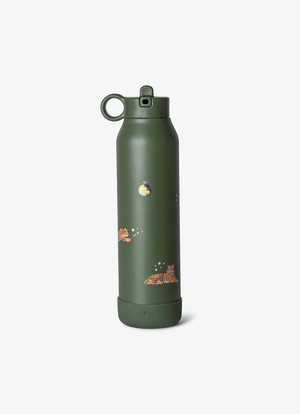The Potential Threats Of Reusable Water Bottles: A Closer Look
Reusable water bottles have gained popularity in recent years for their environmental benefits and cost-effectiveness. They help reduce single-use plastic waste and encourage individuals to stay hydrated on the go. However, like any product, reusable water bottles also come with potential threats and concerns. Here is a list of some of the drawbacks and threats associated with reusable kids water bottles.
Bacterial contamination:
One of the primary concerns with reusable water bottles is the potential for bacterial contamination. If not cleaned and dried properly, moisture left in the bottle can become a breeding ground for harmful bacteria. This can lead to unpleasant odors and, in some cases, health issues if consumed.
Solution: To mitigate this threat, it’s crucial to clean and dry your reusable water bottle regularly. Many bottles are dishwasher-safe, making cleaning more convenient. Additionally, consider bottles with wide mouths that are easier to clean thoroughly.
Material safety:
Not all reusable water bottles are created equal in terms of material safety. Some bottles may be made from materials that contain harmful chemicals like BPA (bisphenol A) or phthalates. These chemicals can potentially leach into the water and pose health risks when consumed.
Solution: Choose reusable water bottles that are labeled as BPA-free and made from food-grade, safe materials like stainless steel or high-quality plastics. Research the materials used in the bottle to ensure they meet safety standards.
Durability:
While reusable water bottles are designed to last longer than single-use plastic bottles, they are not indestructible. Repeated drops, impacts, or exposure to extreme conditions can lead to cracks or damage. This can compromise the bottle’s integrity and potentially create safety hazards.
Solution: Handle your water bottle with care, and consider investing in a durable, impact-resistant bottle if you have an active lifestyle or young children.
Inconvenience:
Carrying a reusable water bottle requires diligence in ensuring you have it with you when needed. Some people find it inconvenient to carry a bottle, especially when they don’t have easy access to refill stations. Forgetting to bring a reusable bottle can lead to purchasing single-use plastic bottles, undermining the sustainability goal.
Solution: Make it a habit to carry your reusable water bottle with you, and look for refill stations or water fountains in your area. Some apps and websites can help you locate nearby water sources.
